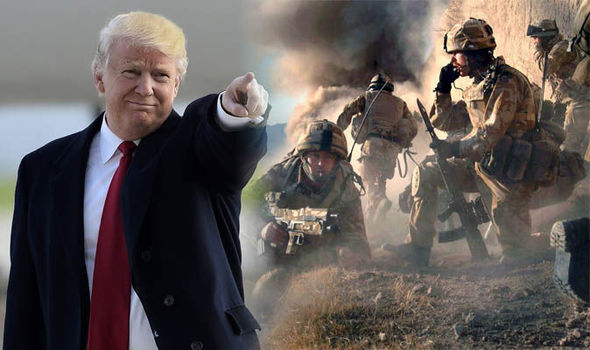
First, evil objectives: banning immigrants, prohibiting Muslims from entering the U.S., denying rights to sexual minorities or abolishing a universal health care system. Later, the deeds, which fortunately still face stumbling blocks of resistance, rule of law and the separation of powers. Poor intentions do not always become reality, as shown by Congressional actions against resident Donald Trump’s decrees and Congress’ interference with attempts to abolish former President Obama’s health care reform.
In any case, what’s done is done because the terrible intentions ended up having an effect. Even though the plan didn’t stay on track, intimidation has already occurred. The vicious cycle of distress and insecurity has been transformed into discrimination and violence in the everyday lives of ordinary people by those in authority.
Human Rights Are Disappearing from United States Foreign Policy
Not counting the geopolitical clutter, it’s enough that this presidency is, so far, only raising concern, but it sets a bad example that could expand later. When the president of the richest, most powerful country in the world treads these dark waters, many others feel authorized to wade in as well or have their worst practices justified, practices which have been more or less hidden until now. Even though Trump is addicted to fake news, one must recognize his ethical directness: he likes despots, criminals included. His presidency pays tribute to Putin, Xi Jinping, Rodrigo Duterte, Abdelfata al Sisi, Erdogan, Orbán and Salman bin Abdulaziz; those he endorses and who inspire him. It sets a bad example but that’s what he chooses.
In accordance with this presidency, human rights are essentially disappearing from U.S. foreign policy at the hands of the White House and the Trump family. The Department of State will see 30 percent of its budget cut, the embassies and most strategic positions will still be covered, and Secretary of State Rex Tillerson is in charge, a man trained at the relentless school of the petroleum industry, prone to looking the other way when trying to extract oil in places where corrupt dictators govern. When he travels to Moscow or Riyadh, for example, he doesn’t earn the sentimentality that his predecessors earned when they sought to meet with human rights activists and were interested in the incarcerated.
Therefore, the embarrassing international disregard for the death of Chinese political prisoner and Nobel Peace Prize recipient Liu Xiaobo under conditions that aroused suspicion, is perfectly understandable. George W. Bush and his “neocons” searched the destroyed Buddhas of Bamyan and the burqa for moral arguments to support intervention in Afghanistan in 2001 in retaliation for the attacks on 9/11. Trump, on the other hand, has found a material reason to keep the U.S. Army in the Afghan country and continue the 16-year war waged by his country: its enormous mineral wealth, which he wants to explore and include in his deals, those economic agreements that are beneficial for everyone.

Leave a Reply
You must be logged in to post a comment.